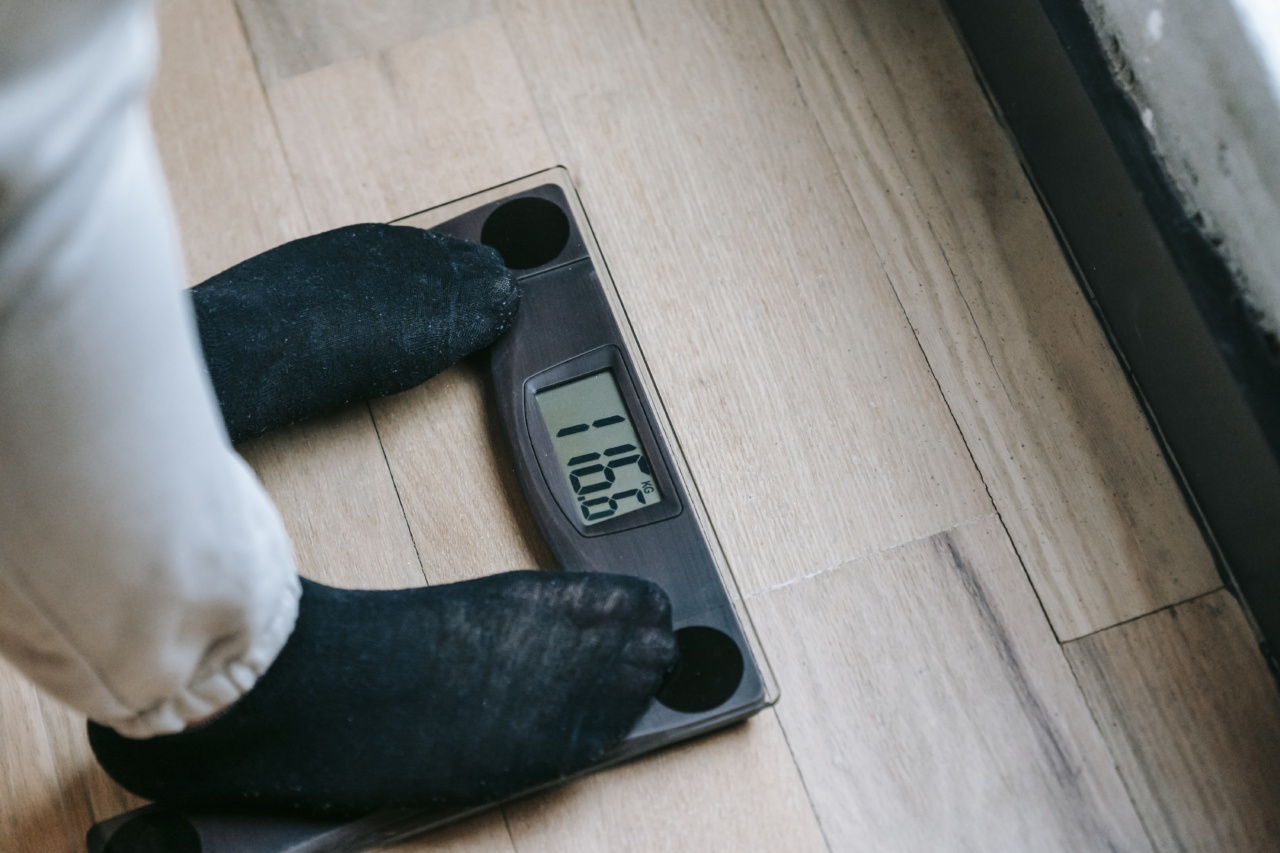Anorexia nervosa, commonly known as anorexia, is a serious eating disorder characterized by an intense fear of gaining weight, a distorted body image, and an excessive desire to be thin.
Individuals with anorexia go to extreme measures to maintain a low body weight, often restricting their food intake significantly, excessively exercising, or even resorting to purging behaviors. This disorder affects both physical and mental health, and if left untreated, can lead to severe complications, or even be fatal.
The Importance of Monitoring Weight
Monitoring one’s weight is crucial for individuals struggling with anorexia, as it helps them keep track of their progress towards recovery and maintain a healthy weight.
However, traditional weighing scales can often become a triggering and anxiety-inducing tool for those with anorexia. The focus on numbers can exacerbate negative thoughts and feelings associated with body image and weight. This is where smart weighing scales come into the picture.
What is a Smart Weighing Scale?
A smart weighing scale is a technologically advanced device that not only measures your weight but also provides additional insights into your overall health.
These scales are equipped with various features, such as body fat percentage analysis, BMI calculation, and even muscle mass measurement. They connect to your smartphone or other devices via Bluetooth or Wi-Fi, allowing you to track and analyze your progress over time and gain a better understanding of your body composition.
The Advantages of Smart Weighing Scales for Anorexia Recovery
1. Focus on Health, Not Just Weight: Unlike traditional scales that solely display your weight, smart weighing scales provide a comprehensive view of your body composition.
This shift in focus from weight to overall health can be a significant mental and emotional relief for individuals recovering from anorexia.
2. Monitoring Progress without Triggers: Smart scales offer the ability to track progress without the need to constantly stare at numbers.
They often have accompanying apps that allow you to see graphs, charts, and trends, which can be more motivating and less triggering. Instead of obsessing over a particular weight, the emphasis is on creating a healthy and balanced lifestyle.
3. Setting Realistic Goals: One of the key aspects of recovery from anorexia is setting realistic and healthy goals.
Smart weighing scales can assist in this process by providing accurate and personalized data that can guide individuals towards a healthier weight and body composition. This way, they can gradually work towards their goals without resorting to harmful behaviors.
4. Personalized and Detailed Insights: Smart scales use advanced technology to offer personalized and detailed insights into your body composition. They can provide information on muscle mass, body fat percentage, and even water weight.
These insights can help individuals understand the impact of their behaviors on their overall health and make informed decisions regarding their recovery journey.
Features to Look for in a Smart Weighing Scale for Anorexia Recovery
1. Body Composition Analysis: Choose a scale that can analyze body composition beyond just weight, such as body fat percentage, muscle mass, and bone density. This feature allows for a more holistic approach to recovery.
2. App Compatibility: Look for a scale that has a user-friendly app that syncs with the scale and provides comprehensive data visualization and tracking options. This makes it easier to monitor progress and set realistic goals.
3. Multiple User Profiles: If multiple individuals in your household are on the path to recovery, choose a scale that offers multiple user profiles. This ensures that each person can have their own personalized data and tracking history.
4. Trend Analysis: A smart scale with trend analysis capabilities can provide valuable insights into long-term progress. Seeing positive trends over time can be highly motivating and encouraging for individuals in recovery.
Overcoming Challenges and Reducing Triggers
It is important to note that while smart weighing scales can be incredibly beneficial in the journey towards recovery from anorexia, they should be used with caution. Here are some tips to overcome potential challenges and minimize triggers:.
1.
Seek Professional Guidance: It is crucial to work with a healthcare professional, such as a therapist or dietitian specializing in eating disorders, who can guide you through the recovery process and help you navigate the use of a smart weighing scale appropriately.
2. Focus on Overall Well-being: Remind yourself that recovery from anorexia is not solely about weight but also about physical and mental well-being.
Use the smart scale as a tool to monitor your overall health and progress, rather than fixating on numbers alone.
3. Limit Frequency of Weigh-Ins: Set guidelines with your healthcare professional regarding how often you should weigh yourself.
Regular weigh-ins are important for monitoring progress, but too frequent weigh-ins can become obsessive and triggering. Find a balance that works for your recovery journey.
4. Use Additional Recovery Resources: Remember that a smart weighing scale is just one part of the recovery process.
Engage in therapy, support groups, and other resources that focus on building a healthy relationship with food, body image, and self-esteem.
The Future of Anorexia Recovery with Smart Technology
The integration of smart technology into the field of anorexia recovery holds immense promise. As advancements continue, we can expect even more sophisticated features and functionalities that cater specifically to individuals with eating disorders.
Smart scales may incorporate AI algorithms to analyze behaviors, provide personalized recommendations, and offer support in real-time. The future holds the potential for a more holistic and technologically enhanced approach to anorexia recovery.





























